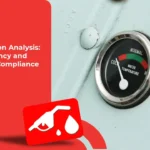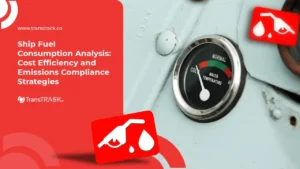Types, How to Maintain and Meaning of Codes Automatic Transmission on Car
Posted on October 12, 2023 by Nur Wachda Mihmidati

The automatic transmission in an automatic car is one of the key components in a vehicle. This transmission plays an important role in controlling the car’s gear shifts. This type of transmission allows the driver to drive without having to manually change gears like in cars with a manual transmission.
There are also several types of transmission systems in automatic cars. Not only the type, the code on each transmission also sometimes differs depending on the type, brand and type of car. This automatic car transmission has more complex components than a manual transmission, so it requires special maintenance to keep your car’s performance optimal.
Curious about a complete explanation of automatic car transmissions? In this TransTRACK article, we will explain what an automatic transmission is, the various types, how to maintain it, and the meaning of the code on the automatic transmission lever.
What is an Automatic Transmission?
Automatic transmission is a system designed to regulate gear shifts automatically, without the need for driver intervention. The way this transmission works uses a complex series of components. The components consist of a torque converter, planetary gearset and electronic components, to regulate gear shifts according to vehicle needs and travel conditions.
Automatic transmissions work by monitoring a number of factors, such as vehicle speed, engine torque, and gas pedal position. Based on this information, the transmission system will decide when is the right time to change gear.
Types of Automatic Transmission
There are several types of automatic transmissions commonly used in vehicles today. Some of them are:
Conventional Automatic Transmission
This is the most commonly used type of transmission. Conventional automatic transmissions have a fixed number of gears, such as gears 1, 2, 3, and so on. This transmission works by changing gears sequentially as the vehicle speed increases.
CVT Automatic Transmission (Continuous Variable Transmission)
CVT transmission is a type of transmission that does not have fixed gears. Instead, this transmission regulates gear shifts continuously to create smooth acceleration. CVTs are often used in economy cars to improve fuel efficiency.
DSG Automatic Transmission (Direct-Shift Gearbox)
DSG is a type of automatic transmission that uses dual clutch technology to change gears very quickly. This provides a sporty and responsive driving experience. DSG is often used in high performance cars.
Hybrid Automatic Transmission
A hybrid automatic transmission combines an electric motor with a petrol or diesel engine. This allows the car to operate in electric or fuel mode, depending on the situation. This type of transmission is usually more efficient in fuel use.
Meaning of Codes on Automatic Transmission Lever
The code on the automatic transmission lever provides information about the active gear position at that time. These codes can vary between different makes and models of vehicles, but some common codes frequently used on most automatic vehicles are as follows:
P (Park)
This is the position used when the vehicle is parked. The transmission will be locked so the vehicle will not move. Make sure the vehicle is always in the “P” position when you park it.
R (Reverse)
R or Reverse gear is used when you want to reverse the car backwards. Make sure that the car has completely stopped before you shift the gear to this position, because otherwise the gear and engine will quickly be damaged.
N (Neutral)
Position N is the condition where the car is free of gear. The car can be driven without activating the engine, and the transmission is unlocked. This is useful when you have to move the car manually, for example when towing the vehicle with a crane.
D (Drive)
Drive is the main position that is often used when driving an automatic car. The transmission will adjust gear shifts automatically according to needs. In most cases, you will drive in the “D” position during everyday driving.
L (Low)
The L or Low position allows the driver to control gear shifts manually, especially when descending steep roads or when passing through rough terrain. On some vehicles, it may also be called “2” or “1” depending on the transmission system.
S (Sport)
Some vehicles are equipped with a “Sport” mode that allows higher and longer upshifts before the transmission upshifts to a higher gear. This mode provides quicker response and stronger acceleration.
How to Maintain an Automatic Car Transmission
Taking good care of the transmission in an automatic car is the key to maintaining optimal performance and extending its service life. Here are some important tips for maintaining an automatic transmission so that it lasts:
Change Transmission Oil Regularly
Change the transmission fluid according to the schedule recommended by your vehicle manufacturer. Oil that is dirty or hasn’t been changed for too long can damage the transmission. Also make sure to use oil that meets the manufacturer’s recommendations.
Don’t Force Gear Shifts
Avoid forcing gear shifts by pressing the gas too hard or suddenly. This can cause excess pressure on the transmission and cause the gears to fall out quickly.
Use the Handbrake When Parking
When the vehicle is parked, always use the handbrake to reduce pressure on the transmission. Do not rely on the “P” position of the shift lever to keep the vehicle stationary.
Use Quality Fuel
Use high-quality fuel and ensure your vehicle’s fuel system is in good condition. Bad fuel can cause damage to engine and transmission components.
If you experience symptoms such as vibration, strange sounds, or abnormal gear shifting, immediately have it checked by a repair shop. Transmission problems detected early can prevent further damage.
You can use the Vehicle Maintenance System from TransTRACK to make it easier to manage and monitor automatic transmission performance. This system can monitor in real time and provide notifications when a component is damaged. Come on, consult your needs with TransTRACK for maximum automatic transmission performance.
Topic :
Recommended Articles

 Bahasa Indonesia
Bahasa Indonesia








